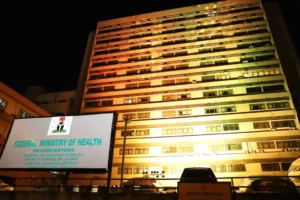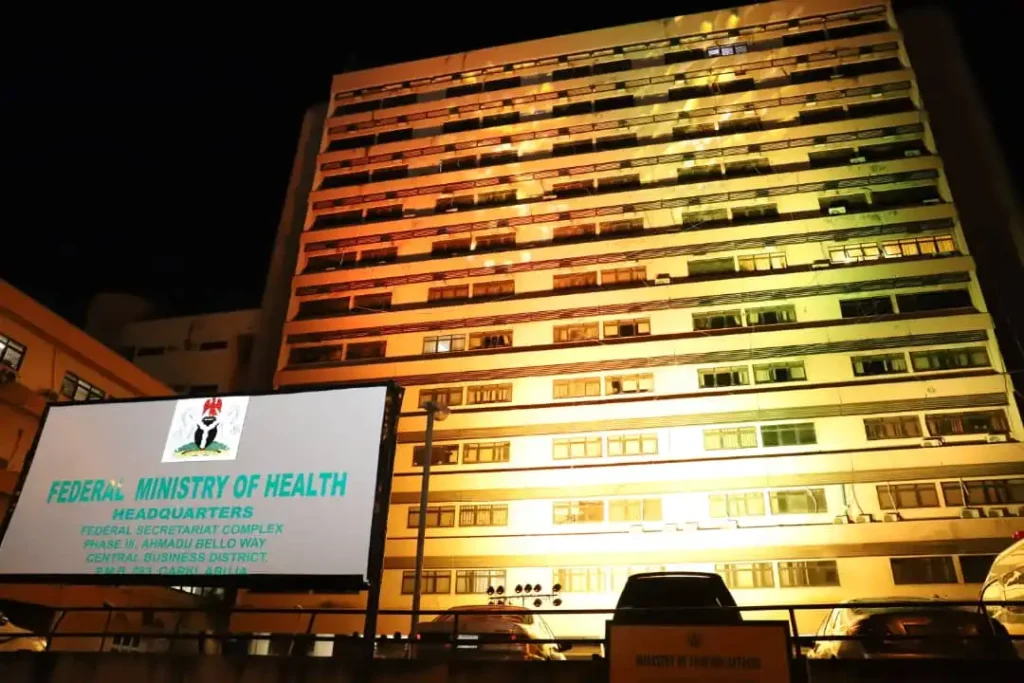In 2001, leaders from 53 African nations gathered in Abuja, Nigeria, to forge a transformative path for public health. Together, they made a bold commitment—to allocate at least 15% of national budgets to healthcare, a vow now known as the Abuja Declaration.
More than two decades later, that vision remains largely unfulfilled. In 2023, Nigeria allocated only 5.75% of its national budget to health, falling well short of the target. For millions of Africans, this chronic underfunding translates into suffering, inadequate care, and preventable deaths.
A Glimpse into Reality: Rural Clinics on the Brink
The impact of this funding gap is painfully visible in places like Damagaza, a rural community near Abuja. On any given day, patients line up for hours under the hot sun, seeking care at the understaffed local clinic.
Ramatu Kuju, a mother from the village, sat clutching her feverish three-year-old son, anxiously waiting for help that might not come. Inside, the situation was dire—no antibiotics, no syringes, no electricity, and just one nurse: Godiya Ishaku.
“I use pieces of cloth as bandages and clean wounds with salt water,” Ishaku said, her voice tinged with fatigue. “Sometimes, we have to turn patients away. Every day, I choose who gets care and who doesn’t.”
This is not an isolated story. Across rural Africa, frontline health workers are forced to operate with limited resources, improvising care under extreme pressure. For them, the failure to meet the Abuja target is not just a policy lapse—it’s a daily human crisis.

Health Spending Declines in Many African Nations
According to World Health Organization (WHO) data, by 2016, 19 African countries were spending less on health than they did in the early 2000s. The slow pace of progress has been compounded by a heavy reliance on foreign donors, which undermines self-sufficiency and long-term sustainability.
Yet some African countries offer models of success:
-
Rwanda’s community health worker programme dramatically improved child survival and life expectancy.
-
Malawi’s focus on malaria prevention and
-
Ethiopia’s Health Extension Programme show how smart investments in primary health care can deliver outsized results—even with modest budgets.
Beyond Percentages: Rethinking What “Progress” Really Means
Experts argue that the 15% target, while symbolic, does not account for the unique economic and healthcare realities in each country.
Health economist Michael Okoh recommends zero-based budgeting, a model that prioritizes real-time needs over historical expenditure. He emphasized that what works in Rwanda might not scale in populous nations like Nigeria.
Crucially, experts agree that how funds are spent matters as much as how much is allocated.
“Without accountability, even large budgets won’t translate into better healthcare,” said Okoh.
Corruption and Mismanagement Undermine Progress
Governance failures are a major stumbling block. The 2023 Transparency International report highlights widespread corruption in Africa’s health systems, where public funds are mismanaged or diverted.
Maimuna Abdullahi of the Africa Health Budget Network (AHBN) stressed the importance of real-time budget tracking and transparency. She noted that countries like Rwanda have gained public trust by using transparent systems that ensure funds reach their intended recipients.
Towards a New Abuja Vision: Sustainability and Structural Reform
Renowned virologist Oyewale Tomori called for a “New Abuja Vision” that prioritizes sustainable financing through:
-
National health insurance schemes
-
Improved tax systems for health funding
-
Private sector investment in infrastructure
Tomori believes such reforms will reduce reliance on international donors, whose role became even more pronounced during the COVID-19 pandemic—exposing the fragility of many African health systems.
He also emphasized the role of primary healthcare and community-based services, which can reduce the burden on hospitals and offer more cost-effective, preventive care.
Data, Monitoring, and Political Will: The Road Forward
One major challenge remains the lack of baseline data on national health capacities and spending. Without it, countries cannot measure progress or adjust strategies effectively.
Tomori and other stakeholders urge the African Union and WHO to work with national governments to create a comprehensive monitoring and evaluation framework. This would track:
-
Health program effectiveness
-
Budget alignment with actual needs
-
Real-time expenditure transparency
A Renewed Pledge Amid a Health Emergency
In February 2023, African leaders reconvened to reassess the Abuja Declaration. While the renewed pledge offered a glimmer of hope, the data remains sobering:
-
Over 20 African countries still depend on foreign donors for at least 20% of their health budgets
-
Nigeria, Africa’s most populous country, faces an especially steep and urgent road ahead
Public health expert Ayodele Adetunji minced no words:
“Leaving African healthcare to chance is a moral, governance, and economic failure. We can’t afford more delay.”
Conclusion: From Rhetoric to Results
As Africa reflects on the legacy of the Abuja Declaration, the question is no longer whether to meet the 15% target, but how to ensure every naira, dollar, or franc spent delivers real health outcomes.
Moving forward, bold policy changes, targeted investments, and robust accountability systems are needed—not just to meet a number on paper, but to save lives and rebuild trust in Africa’s healthcare systems.
The promise of Abuja in 2001 was powerful. But now, it’s time to fulfill it—not in words, but in action.







